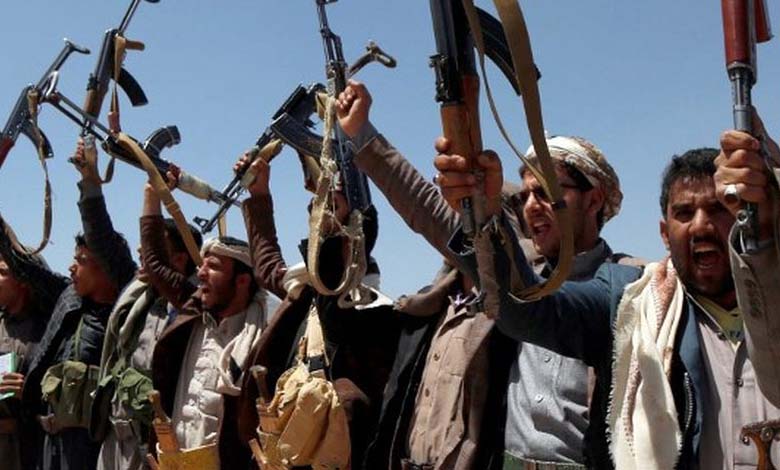Yemen: Hodeida port serves as an entry point for Houthi terrorism

Since the Houthi coup in Yemen against legitimate authority, Iran’s support for these armed militias and its provision of money, equipment, troops, and terrorist plots, the armed group has exploited all of Yemen’s wealth for its own interests, including the port of Hodeida, which it turned from a humanitarian aid door to a Houthi terrorism outlet before the eyes of the United Nations.
The Hodeida port route, through which UN humanitarian organizations transport humanitarian assistance, is only through, though it is under Houthi control, while other ports in the liberated areas of Mukalla-Aden-Mocha have not been used, raising numerous questions about this and the continuation of that situation, raising suspicions of collusion with Houthi.
The Houthi militias use the port of Hodeidah for various military purposes, foremost among them receiving weapons, technical equipment, and foreign experts smuggled by their allies, foremost among them Iran, in addition to being used as a launching base for naval terrorist attacks against international navigation, according to many uncovered evidence, which is considered a threat to international navigation and to international peace and security, which requires a decisive international position.
Militias have turned it from its use to relieve millions of Yemenis from the world’s worst humanitarian disaster, in compliance with the Stockholm Agreement, into a way to transfer terrorism, especially after redeploying its forces in Hodeida, to turn the port into a center for receiving weapons, booby-trapping and launching boats, acts of piracy and the continuous threat to international navigation.
The Houthis have imposed their grip on the port as a means of exerting pressure on the international community and covering up their military operations by disrupting the passage of relief ships and triggering a humanitarian crisis to ensure that the port remains under UN immunity under the Stockholm Agreement, and therefore aid deliveries via the port of Hodeida must stop to ensure that Houthi-supporting countries do not exploit it by smuggling arms.
Militias also use the port as a center for receiving weapons, booby-trapping and firing boats, piracy operations, and constant threats to international navigation. The situation in Hodeida is therefore not only a threat to Yemen or its neighboring countries, but also to international navigation and international peace and security.
The deputy governor of Hodeida, Walid al-Qadimi, has already exposed the extent of corruption by the Houthi militia in the port of Hodeida, accusing Mohammed al-Houthi of being behind the destruction of the ports of Hodeida, As-Salif, and Ras Isa, who directly oversee the storage of smuggled weapons, missile workshops, and marches at the ports.
Al-Qadimi said: “Mohammed al-Houthi plays a major role in looting port resources, estimated at around 14 billion Yemeni riyals per month, adding that the militia uses ports to smuggle Iranian weapons from uninspected cargo ships as well as from Iranian ships stationed at the international shipping line”.
In an international attempt to counter this exploitation of the Houthis, the UN Security Council decided last Monday, under pressure from the UAE and with support from Russia, to extend the embargo on the delivery of weapons to Yemen to all Houthi rebels, after it was limited to specific individuals and companies. This means that the “entity” specified in its annexes, the Houthis, will be subject to procedures related to the arms embargo imposed on Yemen since 2015.
This focus on the Houthis is a precedent that could potentially cause the UN to lose its neutrality in the conflict, according to experts who also consider that all consequences of the resolution have yet to be explored.
For this reason, Major General Michael Burry, head of the UN Mission in Support of the Hodeida Agreement (UNMHA), ended his first week-long visit to the region to discuss intensified monitoring efforts to ensure that Hodeida’s ports in western Yemen are free of weapons and unimpeded humanitarian access.












